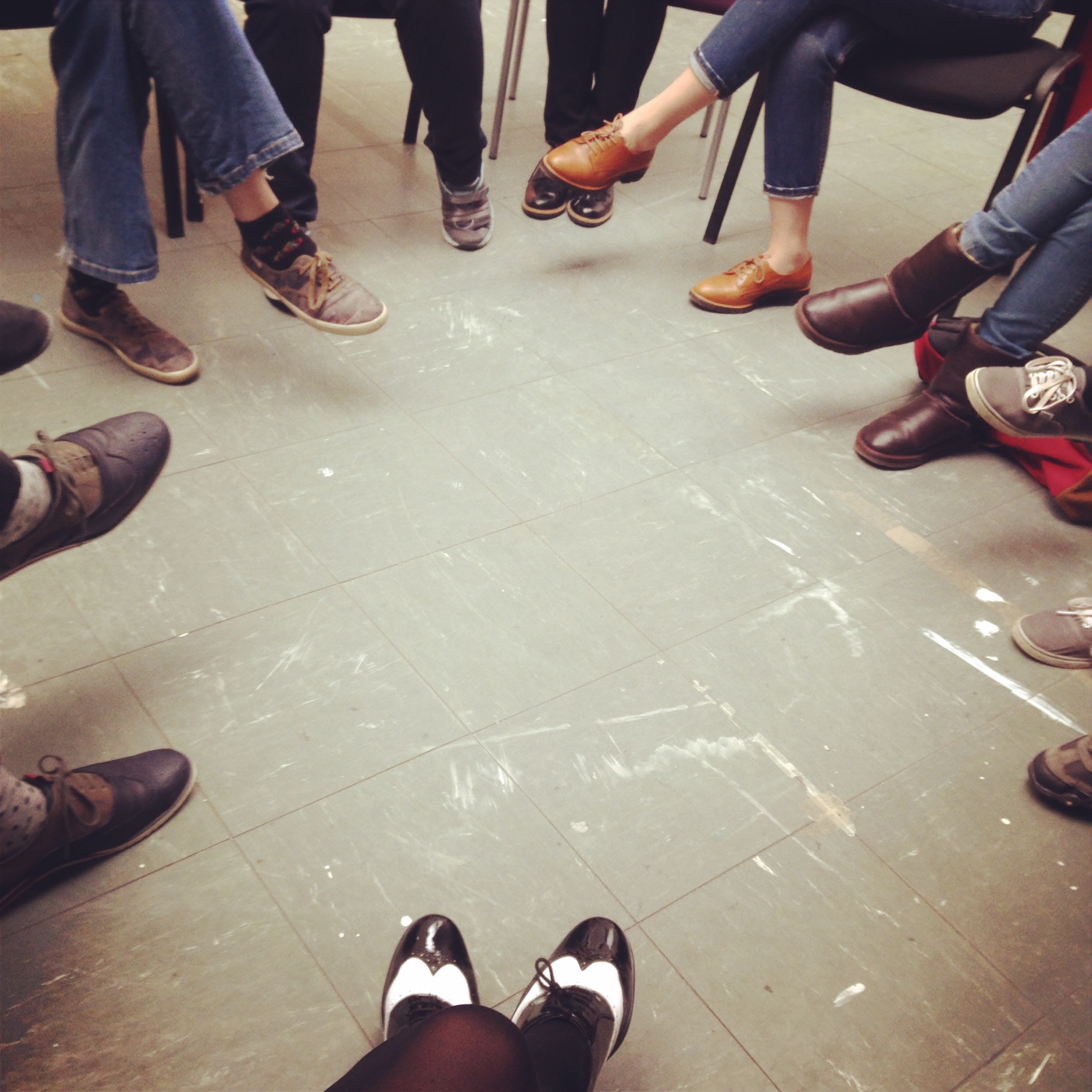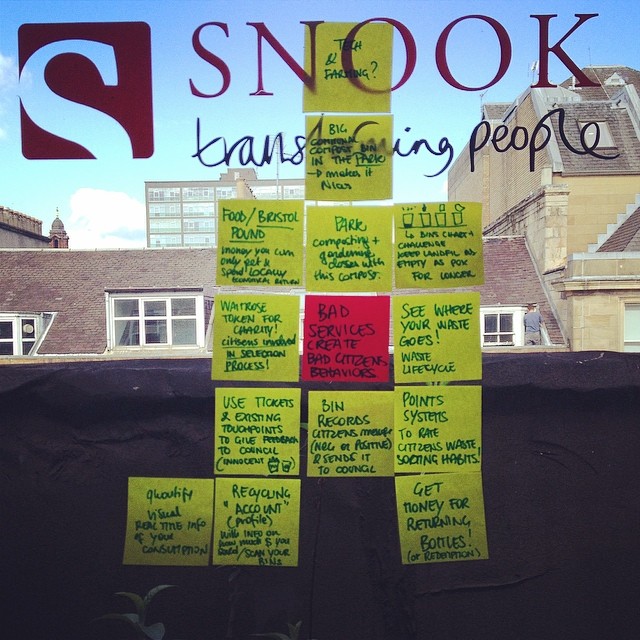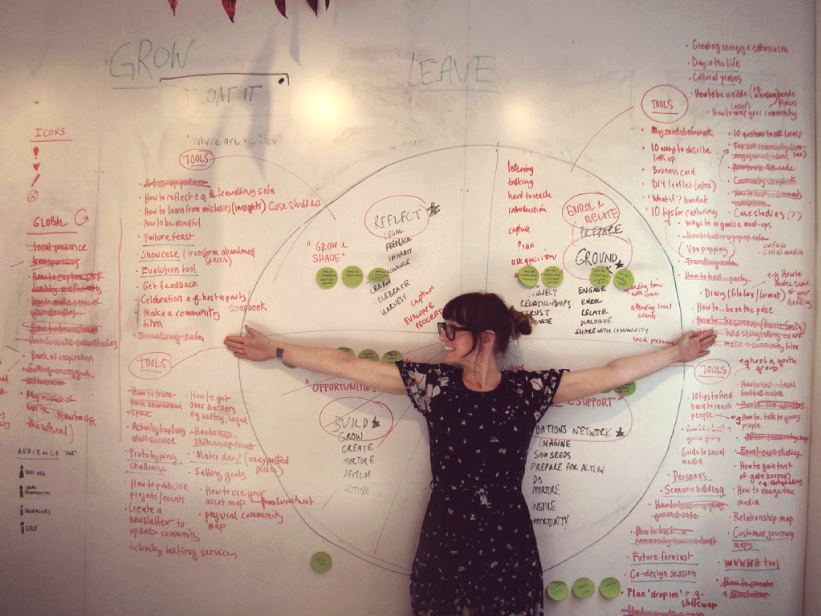How to get a job in Service Design
The students at the Masters of Design for Service in Dundee are thinking about life after university. They're talking to practitioners and business owners to better understand how to get their dream job as a service designer. I hopped on a train to Dundee to spend an afternoon with them and share my thoughts on the subject.

I was grateful to have the excuse to spend some time thinking about these questions. I think it's an area the service design community could talk about more, mainly because the number of grads out there who want to work in this space is growing rapidly. I hope this list might start a conversation ...
What would you add to this list? What is the one thing that would make finding a job / hiring in this space easier for you?
It was also a great chance to talk to my team about this topic beforehand. I sat down with Andy, Alex and Robin (who have hired interns, been interns, studied at Masters level, been hired and everything in-between) and we worked through the questions the students sent.
I'm sharing the answers with you in the hope they will help you along your journey somehow…if you are employing a service designer for the first time or if you are looking to be employed. The answers are of course specific to Snook, our culture and mission.
What are the key attributes of our most successful staff?
Adaptability and flexibility:
We like to work with people who are comfortable with ambiguity and unknowns. People who can bend and flex dependent on the situation, brief and resources available.
Honesty about what you CAN'T do as well as what you CAN do:
When it comes to skills and talents honesty is the best policy. A good example of this is when Alex told us she'd never made post boxes before but then made hundreds of them in a spectacular fashion. We appreciated her honesty.
Initiative
We like people who think of their feet and make stuff happen. Don't ask for permission or wait for instruction. A good example of this was when our new Snookster Charlotte hosted a FIKA in her first week. We liked that.
This is super important. We want to work with people who are genuinely interested and curious about everything. Never ever stop asking questions. Intelligent questions stimulate, provoke, inform and inspire. Questions help us to teach as well as to learn.
Organisational skills
Organising information, ideas, people and projects are all part of the design process. We want to hire people who are not scared of file structures, ganntt charts, time tracking and everything in between. A good example of this is when Jo taught everyone how to save their work correctly following a folder system the military would envy.
Sense of fun
Never underestimate the importance of laughter and fun. It's something we really care about at Snook. We take turns to host a twenty minute Snookspiration every Monday morning. Last week Sarah challenged us to create the 27th letter of the alphabet and the week before Alex gave us tools to make plants for our Snook Garden. There is always music playing in our studio. Dancing is encouraged and we like to laugh. A good example of this is illustrated in the picture below :)
Commitment and passion for the bigger picture of Snook's mission
Everyone who has worked with Snook has been there for reasons beyond themselves and their job - they care about making life better for people, solving problems that matter and being part of a team that has a socially focused vision. Our experience shows that for best results your heart has to be in it.
Persistence and determination
Nothing worth doing is ever easy. We don't live in a bubble of sexy design and garden parties. Our projects tackle a wide range of issues from ageing to alcohol abuse and this is often tough on our heads and our hearts. Many of our projects are about changing minds and bringing creativity into worn out systems. This requires spending time with non-designers in very non-creative environments. It's challenging. We are only five years old and operating in a new market in a small country means the future is unpredictable. We are trying to make big change happen and that takes time.
We want to work with people who are comfortable with this and have the grit and resilience to keep going when things get tough.
Confidence and self-assurance
If you don't believe in yourself it's unlikely anyone else will. We love working with self believers.
A sense of purpose/cause
Why do you do what you do? What gets you out of bed in the morning? A great example of this is Valerie's focus and drive around improving healthcare and Sarah's passion for cycling. It's inspiring to work with people who are working towards improving something they really care about.
How do we recognise this in an application or an interview?
If you are being interviewed you've made it past a good few hurdles. The interview is the perfect chance to let your personality come through. Successful interviews normally cover a broad spectrum of work. We expect people to be able to talk about a range of projects and experiences in context relevant to the job.
I'd recommend talking openly and upfront about money - know your worth and show us you have confidence in your value. Ask questions that show us how your mind works and how amazing your brain is - ask us questions no one has ever asked us before! Ask us questions that will challenge us.
When we looked back at the most successful interviews we kept coming back to our gut feeling - we just knew this person was the right fit.
Technical skills
I know this is an area that different agencies have different view points on. At Snook, we expect graduate level / junior service designers to be well versed in:
1. A broad range of service design tools and the design process
2. Graphic design and the Adobe Suite
3. Communication skills (writing, speaking)
4. Prototyping (from sketching to physical mock ups)
5. Basic video editing skills
6. Good understanding of tech and digital, in a wider societal sense and on a practical level around tools like Wordpress.
7. People skills (from facilitation to presenting ideas to the team)
We don't expect you to be an expert in all of the above, but it's good to have a mixture. The most important thing is you know your own strengths and weaknesses.
Soft skills
For us soft skills are more valuable than technical skills. At the core of these is the ability to understand people and empathise.
Facilitation skills are vital. Be good at conversation - there are resources out there to teach you how to do this and grow your confidence. We hire people who are equally comfortable in the local community centre talking to thirteen year olds as they are talking to our clients. An understanding of team dynamics is a wonderful skill - all our hires from Hyper Island have been trained in the inner workings of team dynamics. Now this is now something we really look for.
Top 5 Turn off's
1. It's not okay to get our names wrong. Even though it really makes Fabian laugh my name is not Laura.
2. Please do your homework. We expect you to know our story, our projects and our team.
3. Please be on time. No excuses. Being late for a Skype call is equally as rude as being late for a meeting. Oh, and if you're late please apologise.
4. Be excited. If you are not, we certainly won't be.
5. Know your value and know how to talk about it.
What do we look for in a portfolio of work?
Balance
A good balance between process and product. Show us the mess as well as the slick stuff
Design
Service Design is an end to end process. Design is about bringing form and tangibility to ideas. Let us see this stuff.
Viewing platform
We would rather view work on a website than a PDF but we all agreed this isn't compulsory.
Truth
Uniqueness and truth are important. Don’t display work that isn't yours and clearly state what your role was if you were part of a team.
Your why
Show us your motivation, your purpose, why do you work as a designer and what do you see in your future?
The digital you
If you are active online show us! Twitter, facebook, instagram, soundcloud and all these profiles paint a rich picture about who you are. If you still don't believe these channels matter read this and then get on it! No excuses.
Side projects
This is becoming more and more common. Read about it here, here and here. Side projects show you are a self-starter and you have passions. You have things like Open Ideo, Cycle Hack and Good for Nothing to give you a head start.
General advice that didn't fit in any of the other boxes.
1. Get connected - if someone we trust tells us you are great you get a head start.
2. Don't feel the need to label yourself - instead look at companies and projects and then work back the way. Job titles don't really matter as much as everyone thinks they do.
3. If you are adding someone on LinkedIn you don't know, write them a tailored message to tell them why you want to connect.
There's another blog post and conversation to be had about the specific role and skillset of a service designer - where the value lies and how I can see this evolving. At the end of the day, service design is a process and many of the skills associated with that process are very transferable to different contexts...something for the graduates out there to bare in mind. But for now...
What would you add to this list? What is the one thing that would make finding a job / hiring in this space easier for you?





